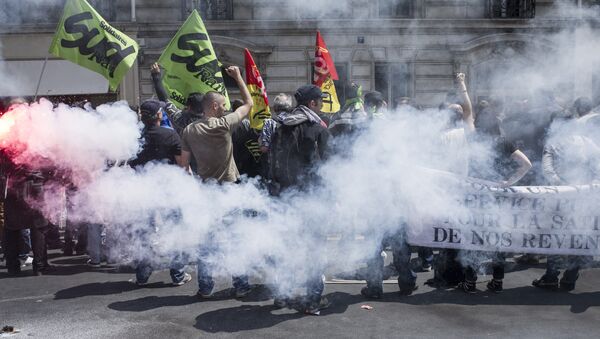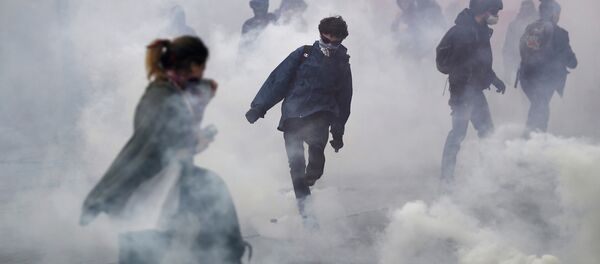The Paris police originally banned the planned march, initially because of fears the protest could turn violent following bitter clashes in recent months. They said the demonstration had to be static. But in an astonishing volte face, the French government said Wednesday (June 22) the march could go ahead.
France has been beset by protests since Hollande's Socialist government forced through changes to the strictly codified French labor laws — known as the Code du travail — in an effort to make it easier for employers to take on permanent staff and allows for more flexible working.
There have been rolling strikes for two months, affecting fuel refineries, fuel depots, the French railway, garbage collections, public services and educational establishments. Air France has been hit by a strike following a separate disagreement over a planned reorganization of the carrier.
The main unions had called for a mass march through Paris, June 23, to bolster support for the campaign to have the labor reforms overturned, despite the loss of public support. However, the authorities threatened to ban the march if the unions refuse to stage a static protest in one place. The unions said they would defy the order and march through Paris.
Les organisations obtiennent le respect du droit de manifester
— La CGT (@lacgtcommunique) 22 June 2016
Communiqué CGT, FO, FSU, Solidaires, UNEF, UNL, FIDL https://t.co/a7tnEmX0pT
(Tweet: "Unions win respect of the right to protest.")
The labor reforms would give employers more scope to lay-off workers and cut costs and allow some employees to work far longer than the current — and much cherished — maximum 35-hour week. Other reforms include a cap on severance pay for workers dismissed by a company. The current uncertain cost of laying-off workers mean that companies are risk-averse to doing so, leaving them less flexible and — in some cases — less productive. Opponents say the reforms would undermine workers' rights on pay, overtime and breaks.



